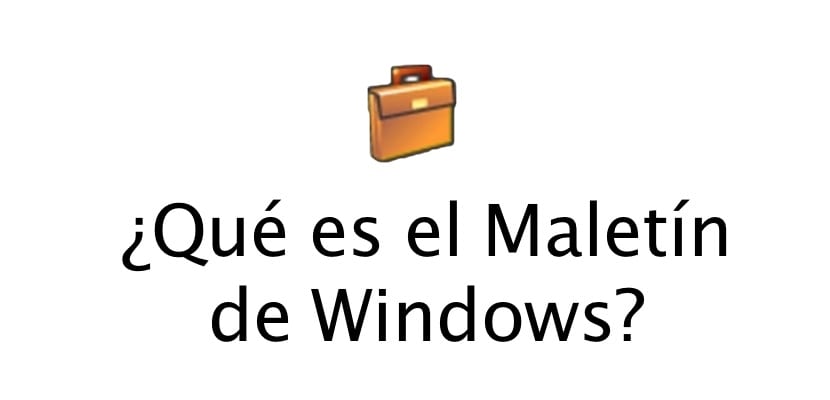
One of the functions that has recently fallen into disuse as Microsoft has been launching new versions of Windows has been the Briefcase function, that application that came from the hand of Windows 95 and that many users have never really managed to know what it was for. useful that function. Keep in mind that Microsoft has always been adding new functions and applications to its operating systems, some of which have endured over time while others have been quickly eliminated as completely useless. The Briefcase application could be considered one of them but its main problem is that it was an application ahead of its time.
The Briefcase application allows us to quickly share files between the desktop and the laptop. As I mentioned above, the Briefcase application was ahead of its time since it allowed us to synchronize our files with our laptop. The problem is that at that time the price of laptops was too high as for any users to make use of them at home unless it was strictly necessary for their work.
The operation of this application is very simple since we only have to drag the files with which we are going to work on our laptop. Once we have automatically dragged them it will be copied to the other computerIn this case, a laptop that is also connected to the same network. You can work directly from the files that we have copied into the Briefcase, so that the last modified file will always be found on both computers.
Currently if we do not want to use this service, the best we can do to have the same files synchronized on all computers is use a Dropbox, OneDrive, Google Drive account so that any modification made on one of the computers can be opened on any other.